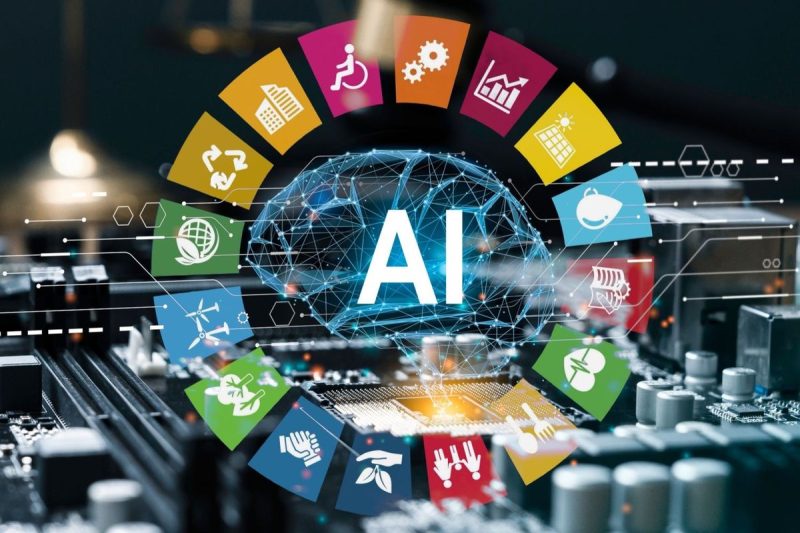**Industry Transformation: The Impact of Artificial Intelligence**
**1. Healthcare Sector:**
Artificial Intelligence (AI) has brought about significant transformations in the healthcare industry, enhancing patient care and operational efficiency. Medical professionals can now utilize AI-powered tools to analyze large volumes of data and make more accurate diagnoses. Machine learning algorithms can predict patient outcomes and suggest personalized treatment plans, leading to improved patient care and better health outcomes.
Furthermore, AI facilitates remote patient monitoring and telemedicine services, enabling healthcare providers to reach a wider patient population and offer care outside of traditional clinical settings. This technology also helps in detecting diseases at early stages, improving preventive healthcare practices. Overall, AI is revolutionizing the healthcare sector by making healthcare more accessible, efficient, and personalized.
**2. Manufacturing Industry:**
The manufacturing industry has witnessed a significant transformation with the integration of AI into various processes. AI-powered robots and automated systems have revolutionized production lines, leading to increased productivity, improved quality control, and reduced operational costs. AI algorithms can analyze production data in real-time, allowing manufacturers to optimize processes and identify inefficiencies.
Additionally, predictive maintenance powered by AI helps manufacturers prevent equipment failures and minimize downtime, thereby increasing overall operational efficiency. Through the application of AI, manufacturers can achieve better inventory management, demand forecasting, and supply chain optimization. AI is rapidly reshaping the manufacturing industry by streamlining operations, improving product quality, and enhancing overall competitiveness.
**3. Financial Services:**
Artificial Intelligence has introduced significant changes in the financial services sector, transforming how banks and financial institutions operate. AI-powered algorithms are used for risk assessment, fraud detection, and personalized financial advice. These tools analyze vast amounts of data to identify patterns and anomalies, enabling financial institutions to detect fraudulent activities in real-time and enhance security measures.
Furthermore, AI is revolutionizing customer service in the financial sector through chatbots and virtual assistants that provide personalized support and assistance to customers round the clock. This technology also enables more accurate credit scoring and lending decisions, leading to improved risk management and enhanced customer experience. With AI, financial services are becoming more efficient, secure, and customer-centric.
**4. Retail Industry:**
The retail industry is experiencing a transformative impact of AI across various aspects of operations, from inventory management to customer engagement. AI-powered tools are used to analyze consumer behavior, preferences, and purchase patterns, enabling retailers to offer personalized product recommendations and targeted marketing campaigns. This leads to increased sales, customer loyalty, and overall business growth.
Moreover, AI-driven supply chain management helps retailers optimize inventory levels, reduce out-of-stock situations, and improve order fulfillment processes. AI-powered chatbots and virtual shopping assistants provide personalized customer support, leading to enhanced shopping experiences and increased customer satisfaction. AI is reshaping the retail industry by revolutionizing how retailers interact with customers, manage inventory, and drive sales.
**5. Transportation Sector:**
Artificial Intelligence is revolutionizing the transportation sector, bringing about transformative changes in mobility, logistics, and traffic management. AI-powered algorithms are used to optimize route planning, reduce congestion, and enhance transportation efficiency. Autonomous vehicles driven by AI technology are becoming a reality, offering safer and more efficient transportation options.
AI-enabled predictive maintenance and real-time monitoring systems help transportation companies maintain their fleets and infrastructure effectively, minimizing downtime and reducing maintenance costs. Moreover, AI-driven demand forecasting and dynamic pricing strategies optimize transport services, leading to improved efficiency and profitability. Artificial Intelligence is reshaping the transportation sector by fostering innovation, enhancing safety, and improving overall operational performance.
In conclusion, Artificial Intelligence is playing a pivotal role in transforming various industries by driving innovation, enhancing efficiency, and improving customer experiences. As AI continues to evolve and advance, industries will witness further disruptions and transformations, leading to a future where AI is a central component of business operations across diverse sectors.
